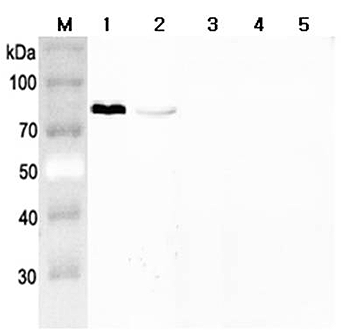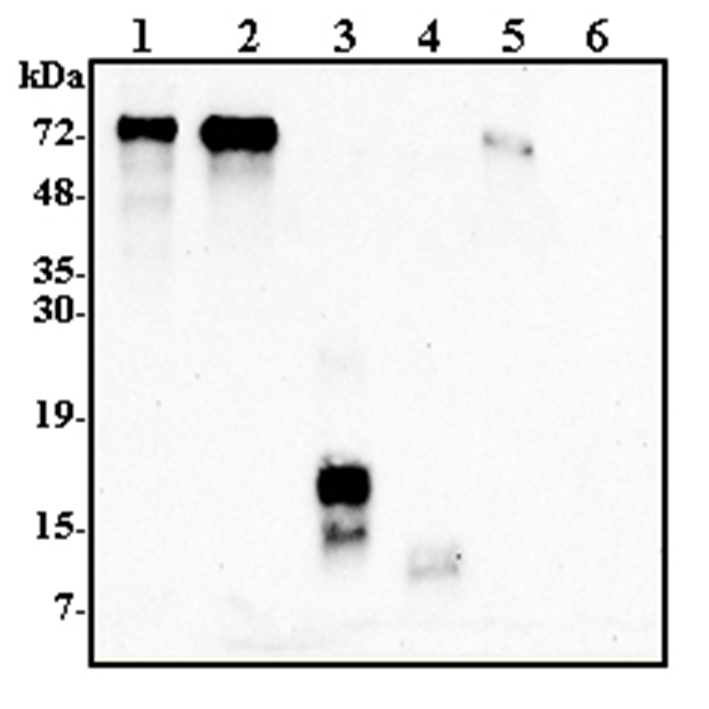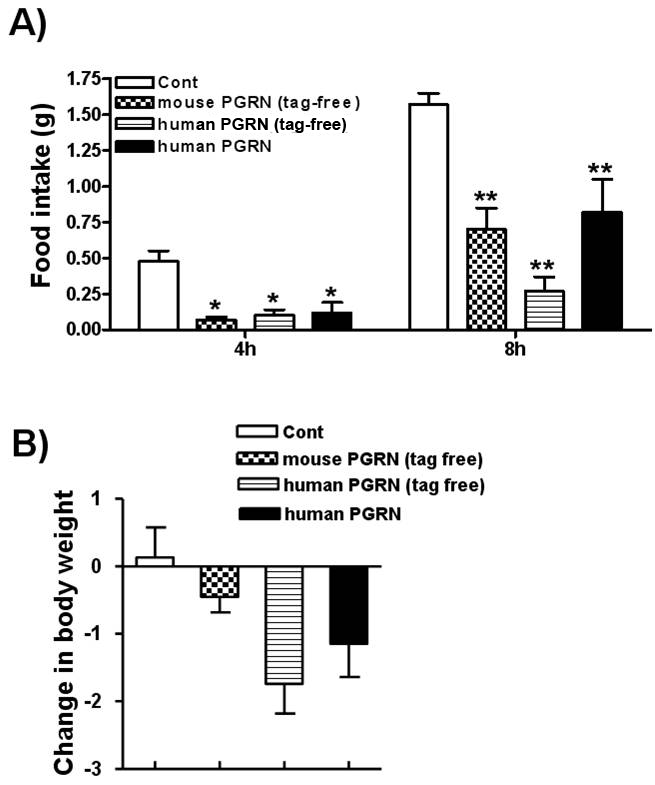
Western blot analysis using anti-Progranulin (mouse), pAb (Prod. No. AG-25A-0093) at 1:2000 dilution. 1: Mouse Progranulin (FLAG®-tagged). 2: Human Progranulin (FLAG®-tagged). 3: Human Granulin C (FLAG®-
anti-Progranulin (mouse), pAb
AG-25A-0093
ApplicationsWestern Blot, ELISA
Product group Antibodies
ReactivityMouse
Overview
- SupplierAdipoGen Life Sciences
- Product Nameanti-Progranulin (mouse), pAb
- Delivery Days Customer10
- ApplicationsWestern Blot, ELISA
- CertificationResearch Use Only
- ClonalityPolyclonal
- Concentration1 mg/ml
- HostRat
- Protein IDP28798
- Protein NameProgranulin
- Scientific DescriptionPolyclonal Antibody. Recognizes mouse progranulin. Detects a band of ~90kDa by Western blot. Weakly cross-reacts with human progranulin. Source: Rat. Applications: ELISA, WB. Liquid. 0.2microm-filtered solution in PBS, pH 7.4. Contains no preservatives. Progranulin (PGRN) is a widely expressed pluripotent growth factor which plays a role in processes such as development, wound repair and inflammation by activating signaling cascades that control cell cycle progression and cell motility. Its function in the central nervous system is of interest, as mutations in the PGRN gene were found in cases of frontotemporal degeneration (FTLD). In addition, PGRN has also been linked to tumorigenesis. Progranulin is a biomarker for FTLD, other types of Alzheimers Disease (AD) and potentially for MCI (Mild Cognitive Impairment). Additionally, PGRN is described as a new ligand of TNF receptors and a potential therapeutic against inflammatory disease like arthritis. - Progranulin (PGRN) is a widely expressed pluripotent growth factor which plays a role in processes such as development, wound repair and inflammation by activating signaling cascades that control cell cycle progression and cell motility. Its function in the central nervous system is of interest, as mutations in the PGRN gene were found in cases of frontotemporal degeneration (FTLD). In addition, PGRN has also been linked to tumorigenesis. Progranulin is a biomarker for FTLD, other types of Alzheimers Disease (AD) and potentially for MCI (Mild Cognitive Impairment). Additionally, PGRN is described as a new ligand of TNF receptors and a potential therapeutic against inflammatory disease like arthritis.
- ReactivityMouse
- Storage Instruction-20°C,2°C to 8°C
- UNSPSC41116161


